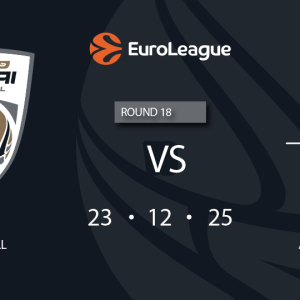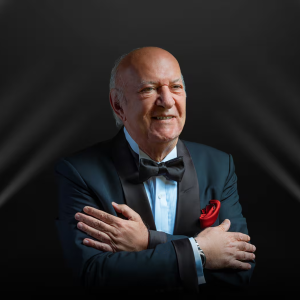Abu Dhabi’s iconic Qasr Al Hosn, the city’s oldest and most revered historical landmark, once again came alive as it hosted the much-anticipated Qasr Al Hosn Festival 2025. Spanning over two weeks from January 25 to February 9, the festival became a resounding tribute to the United Arab Emirates’ deep-rooted traditions, bringing together music, heritage, crafts, food, and community celebration in the heart of the capital. The event, organized by the Department of Culture and Tourism – Abu Dhabi (DCT Abu Dhabi), highlighted the significance of preserving Emirati identity while embracing modernity.
Qasr Al Hosn Festival 2025 : A Historic Setting Meets Contemporary Culture
Qasr Al Hosn, standing since the 18th century, has long symbolized the political and cultural evolution of Abu Dhabi. As the city developed into a modern metropolis, Qasr Al Hosn remained a physical and symbolic anchor to the UAE’s roots. It was only fitting that this living monument played host to a festival aimed at bridging past and present through immersive cultural programming. Under the theme “A Living Expression of Abu Dhabi’s Culture,” the 2025 edition offered more than a nostalgic look back—it invited people of all ages and backgrounds to actively participate in a cultural dialogue that continues to shape the nation.
Traditional Music Echoes Through the Courtyard
Among the most captivating elements of the festival was the celebration of traditional Emirati music. The Qasr Al Hosn courtyard, once a site of governance and tribal negotiation, transformed into a vibrant stage for folk performances, including Al-Ayyala, Al-Razfa, and Al-Taghrooda. These art forms, deeply rooted in Bedouin life, resonated with the crowds, many of whom sang along with performers in a display of shared cultural memory.

One of the standout features of this year’s musical lineup was the Tcholeeb performance, a fusion of poetry and equestrian skill. Performers recited verses while riding on horseback, offering a powerful glimpse into how oral traditions and horsemanship have historically been interwoven in Gulf societies. The blend of rhythmic chanting and synchronized horse movements mesmerized onlookers, transporting them to a time when poetry was not only entertainment but a vital social tool.
Cultural Zones: A Journey Through Heritage
To accommodate the breadth of Emirati culture, the festival grounds were organized into distinct zones: the Heritage Zone, the Crafts Zone, and the Community Zone. Each area showcased a unique facet of Emirati life, giving visitors the opportunity to explore, learn, and engage.

The Heritage Zone offered a walk through traditional Emirati village life, with demonstrations of daily tasks such as pearl diving, falconry, and palm frond weaving. Reenactments of majlis gatherings and storytelling sessions captured the spirit of communal life, emphasizing the role of oral history in cultural transmission. Artisans, many of whom were elders from local communities, generously shared their knowledge with younger generations, passing on skills that might otherwise fade with time.
The Crafts Zone brought attention to the intricate world of Emirati craftsmanship. From textile weaving and henna art to traditional boat-building and pottery, this zone highlighted the ingenuity and creativity that flourished in the pre-oil era. Contemporary Emirati designers were also invited to exhibit modern interpretations of these age-old crafts, sparking a dialogue between tradition and innovation. Visitors were encouraged to participate in hands-on workshops, making the experience not just educational but personally enriching.
The Community Zone celebrated the dynamic and evolving cultural fabric of modern Abu Dhabi. Local artists and musicians performed contemporary sets infused with traditional motifs, while food vendors offered an exciting array of dishes that merged heritage flavors with modern gastronomy. This area exemplified how culture, when nurtured, continues to grow and adapt while staying rooted in its essence.
Interactive Experiences for All Ages
The festival was designed with families in mind. Special programming ensured that children were not merely observers but active participants. Storytelling corners, traditional Emirati games, costume stations, and arts and crafts workshops created a lively and inclusive environment for younger audiences. Parents appreciated the chance to introduce their children to cultural practices in a fun and engaging way.
For adults, the festival also featured cultural seminars, panel discussions with historians and cultural experts, and even film screenings that explored Emirati identity through visual storytelling. These events provided deeper context for the experiences offered throughout the festival, reinforcing the idea that culture is not just to be observed but to be critically appreciated and discussed.
A Culinary Journey Through Emirati Flavors
No celebration of culture is complete without food, and the Qasr Al Hosn Festival did not disappoint. Emirati culinary traditions were showcased with flair at the food courts and special tasting areas. Visitors sampled local favorites such as harees (a wheat and meat porridge), machboos (a spiced rice dish with meat or fish), and the ever-popular luqaimat(sweet dumplings drizzled with date syrup).
The festival also hosted the Gahwa Championships, a unique event spotlighting the art of Arabic coffee making. Competitors were judged on their brewing techniques, presentation, and even the cultural etiquette associated with serving coffee. This competition not only delighted coffee lovers but also deepened appreciation for gahwa as a symbol of hospitality and social bonding in Emirati culture.
Inclusivity at Its Core
True to Abu Dhabi’s values of inclusiveness and accessibility, the festival offered free admission for children under five, senior citizens, and People of Determination. Discounts were extended to students, healthcare professionals, and members of the armed forces. Sign language interpreters and accessible walkways ensured that everyone could fully participate in the event. These efforts were widely praised and reflected the government’s commitment to cultural democratization.
The Broader Impact of Al Hosn Festival
The Al Hosn Festival is more than just an annual event; it is a critical cultural initiative. It serves to reinforce national identity, inspire pride among citizens and residents, and educate younger generations. It also attracts tourists and expatriates eager to learn about the country beyond its skyscrapers and luxury shopping malls.
By supporting the preservation of cultural knowledge and practices, the festival contributes to the UAE’s broader vision of sustainability—not just in environmental or economic terms, but in maintaining the living heritage of its people. The festival’s integration of ancient and contemporary culture illustrates a nation confidently embracing the future while honoring its past.
Looking Ahead
As the curtains closed on Qasr Al Hosn Festival 2025, the echoes of music, laughter, and conversation lingered in the historic corridors of the fort. For many, it was more than just a festival—it was a reminder of the values that define Emirati identity: hospitality, resilience, creativity, and unity.
Looking ahead, the success of the 2025 edition promises even more dynamic programming in future festivals. Plans are reportedly underway to expand the festival’s international reach, inviting artisans and performers from other Gulf countries to foster regional cultural exchange.
Whether you are a long-time resident, a newcomer, or a traveler passing through, the Qasr Al Hosn Festival offers a rare and beautiful opportunity: to connect with a culture that honors its history while embracing tomorrow.
Do follow Uae stories for more Updates
ADNOC Abu Dhabi Marathon 2024: A New Chapter Through City Landmarks














